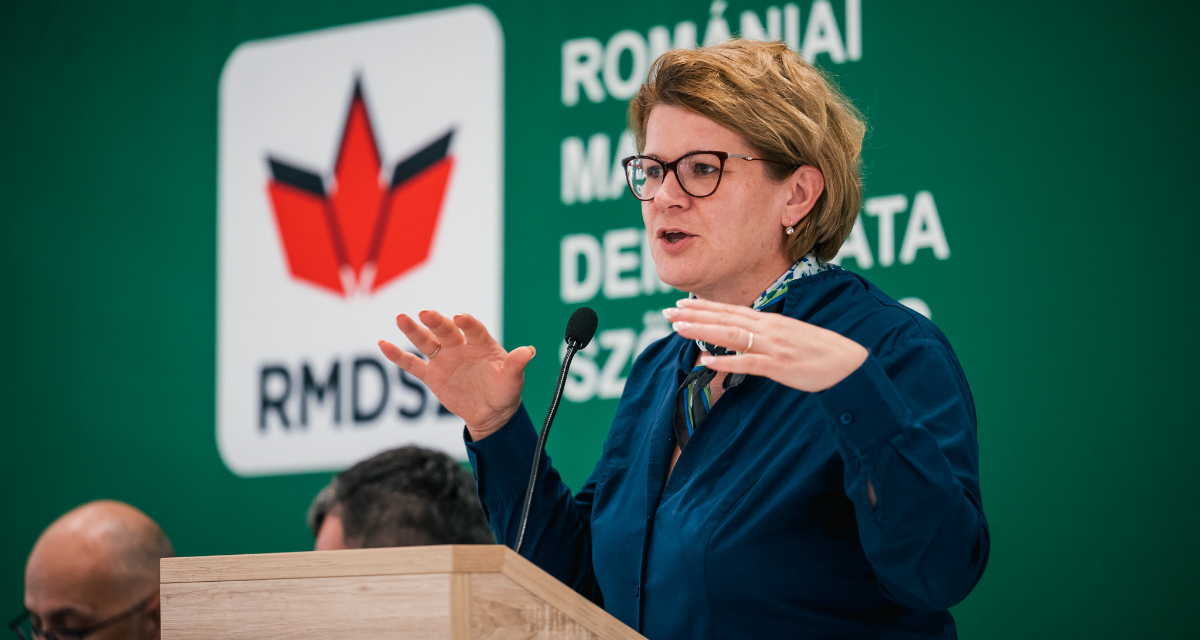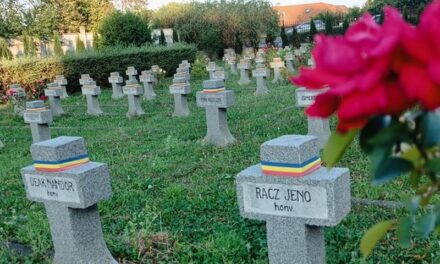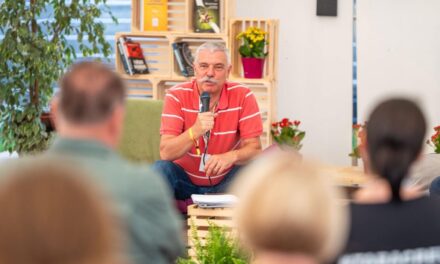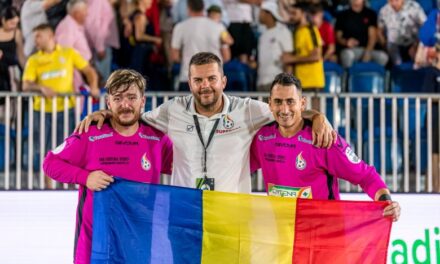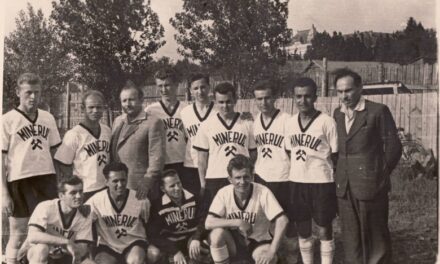The Hungarian party wants a higher proportion of Hungarians than Romanian voters in the June elections.
The Romanian opposition parties strongly oppose the merging of the local and European Parliament elections, but according to the RMDSZ, the joint voting on June 9 will not change anything. Anna Horváth, the executive vice president of the RMDSZ responsible for local governments, stated that regardless of the merging of the two elections, the stakes remain the same.
"The RMDSZ must assert the interests of Hungarians in Romania on June 9. We have done the job well in recent years, and we stand boldly in front of our community. We are prepared, we are motivated, we are preparing the campaign with full force," he explained.
Regarding the strategy for the June 9 elections, the RMDSZ politician from Cluj-Napoca said that it is necessary to reach every single Hungarian in Transylvania and to tell every Hungarian that the extraordinary election year of 2024 will define our common future at home and abroad for at least a decade. In Europe. June 9 is the first step of this great competition.
Anna Horváth emphasized that Transylvanian Hungarians must win in the municipalities and preserve their European representation.
"We can only protect our community from Romanian extremist forces if we manage our settlements and have a strong representation in Brussels and Bucharest. We have another good argument: if we can show the strength of the Hungarians on June 9, then we will most likely win the parliamentary elections in December," said the RMDSZ politician, who believes that this year's election victories will bring the alliance closer to from the end, he can work again in the government in Bucharest for the Transylvanian Hungarians.
Regarding the selection of municipal representative and mayor candidates, Anna Horváth made it clear that, similarly to the practice of the past decades, the running candidates must be selected in local primaries this year as well.
The county organizations already decide which method of primary election they will choose: they rank the candidates based on a delegate assembly, a general assembly or a ballot-box primary election. According to the executive vice president, the responsibility of mayors and local government representatives is also important in the decade ahead. They are not only the owners of the settlements, but also shapers of the future.
Primarily, they are not managers, but supervisors, which is why RMDSZ wants to put a lot of emphasis on their selection.
In 2020, the RMDSZ formed a local electoral coalition with Romanian parties in two scattered counties in Transylvania. When asked whether this will continue, Anna Horváth replied that "we have to cross the bridge when we get there", therefore the approval of possible election agreements should only be discussed when such a thing arises. In connection with the negotiations with the Transylvanian Hungarian Association, the RMDSZ politician, referring to the expectations of the Hungarian community in Romania, stressed that
the RMDSZ considers the cooperation between Transylvanian Hungarian political organizations and the election agreement to be important.
"We have already agreed on this with both the Transylvanian Hungarian Association and the Hungarian Civil Force. The Federal Standing Council will decide on specific local agreements and their approval at the appropriate time - but this is a technical issue that we, the community leaders, have to deal with, and the Hungarian people are less interested in it," said Anna Horváth.
In the eyes of the Hungarian public in Transylvania, the stake is to keep the municipalities of Marosvásárhely and Szatmárnémeti, which are now mostly Romanian, and the municipalities of the two counties in "Hungarian hands". Both cities are of particular importance, and both cities must be led by Hungarian mayors in the next cycle as well - said Anna Horváth, who said that Gábor Kereskényi and Zoltán Soós have proven to be good stewards of Szatmárnémeti and Marosvásárhely in the last 8 years and in the last 4 years.
According to the executive vice president, the two mayors have shown that they are leaders who understand what the local community needs, so in 2024 the people of Szatmária and Vásárhely will make good decisions if they are entrusted with the work.
Anna Horváth emphasized that in the past three years - while the RMDSZ was in government - they supported the development plans of both city governments with great care, and this intention will remain unchanged in the coming years.
When asked what the chances are of retaining the Hungarian deputy mayor mandates in the Transylvanian settlements inhabited by Romanians after the local elections, the executive vice president of the RMDSZ said: if the Hungarian community is behind the Hungarian candidates, then the Romanian parties cannot bypass Hungarianness.
"This depends on the strength of the Hungarian community and not on the good intentions of the Romanian parties. Consolidating the elections also means that Romanian participation will be high, so if we want to preserve our power and influence and still want a Hungarian deputy mayor in our settlements, then we Hungarians must vote in a higher proportion than the national participation," emphasized the June 9 elections. Anna Horváth, RMDSZ's executive vice-president responsible for local governments, made her bet.
Cover photo: Anna Horváth, RMDSZ executive vice-president responsible for municipalities
Source: Facebook/Anna Horváth

